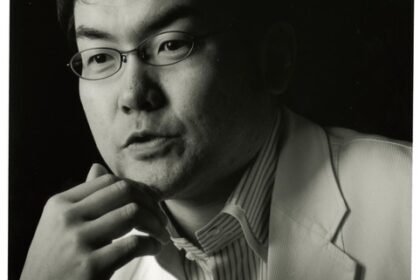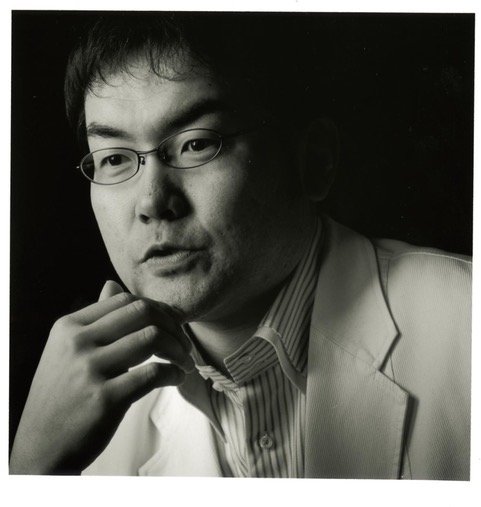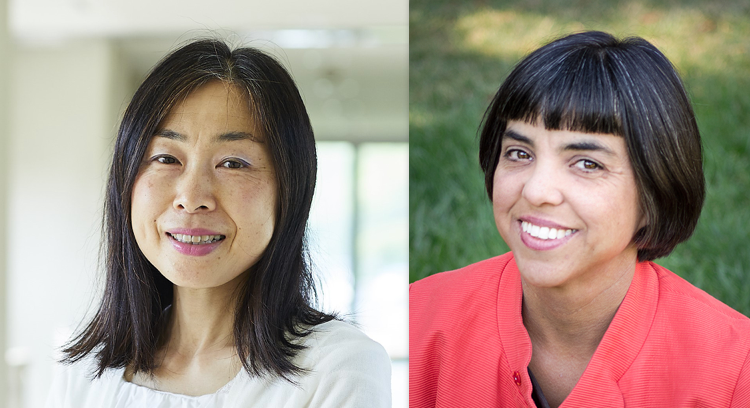FOUR POEMS by Ryoichi Wago, trans. Judy Halebsky & Ayako Takahashi

Wago, Ryoichi. Since Fukushima. Trans. Judy Halebsky & Ayako Takahashi. Vagabond Press, 2023. Print.
Purchase the book here.
Screening Time
November 26th, 2011
—exiting the restricted area, a 20 km radius of the power station
screening palms
screening the back of my hands
screening with my hands up
screening with my hands down
screening over my head
screening the back of my head
screening the sole of my left shoe
screening the sole of my right shoe
screening my entire body
screening what is outer space
screening what is a hometown
screening what is life
screening what is radiation
to us
what is most precious
what cannot be measured
You
(no date)
precious
you
what are you
doing now
you are me
I am you
from the obsidian depths of night
it’s you I am thinking about
and for me
from me
you
I won’t give up on
for you
I won’t give up
JANUARY 7th, 2021
I swooned
reeled
reeling.
it was spring, one year after the disaster.
I boarded a helicopter and traveled into the restricted zone,
the 20 km surrounding the nuclear power station,
high above, looking over the land below.
from a perfectly kept beach,
we crossed into the forbidden sky,
as though we were trespassing.
the land left just as it was that day.
huge, concrete wave-breaks strewn on the beach.
houses, cars, and boats hit by the tsunami, scattered everywhere.
mud and stones spread across roads and fields, electric poles keeled over.
dogs chained at front doors and left behind….
time stopped.
no.
time doesn’t exist.
I remembered that.
dizzy. still now.
could be. the aftershocks.
which continue even now, I think.
the other day, I heard a story
from a dairy farmer living within 20 km of the power station.
“the cows were so hungry
there were teeth marks all through the barn and along the fences.
until the end, trying to find something to eat.
they wasted to skin and bones then fell over…”
*
“tomorrow, what will you be doing? tomorrow, like today, getting by. an aftershock.
tomorrow, what will you be doing? tomorrow, like today, standing here. an aftershock.
a local broadcaster says, now everyone has heard of Fukushima. if we can recover, it’s an opportunity for us, he says. we’re known all over the world. an aftershock.
we clung to hope. tried to be grateful. is there a reward? maybe. but.
our families and our roots are here. famous around the world? I’ll burn the map.
an aftershock.
it’s calm. the night air, radiation. an aftershock.”
(March 22, 2011)
PEBBLES OF POETRY
Part 1: March 16th, 2011, 4:23 am —March 17th, 2011, 12:24 am
Such a huge catastrophe. I was staying at an evacuation center but I’ve now pulled myself together and returned home to work. Thank you for worrying about me and encouraging me, everyone.
March 16th, 2011. 4:23 a.m.
Today, it is six days since the earthquake. My way of thinking has completely changed.
March 16th, 2011. 4:29 a.m.
I finally got to a place where all I could do was cry. My plan now is to write poetry in a wild frenzy.
March 16th, 2011. 4:30 a.m.
Radiation is falling. It is a quiet night.
March 16th, 2011. 4:30 a.m.
This catastrophe is so painful, and for what?
March 16th, 2011. 4:31 a.m.
Whatever meaning we can find in all this might come out in the aftermath. If so, what is the meaning of aftermath? Does this mean anything at all?
March 16th, 2011. 4:33 a.m.
What does this catastrophe want to teach us? If there’s nothing to learn from this, what should I believe in?
March 16th, 2011. 4:34 a.m.
Radiation is falling. A quiet quiet night.
March 16th, 2011. 4:35 a.m.
I was taught, “wash your hands before coming in the house.” But there isn’t any water for us to use.
March 16th, 2011. 4:37 a.m.
Relief supplies haven’t arrived in Minamisôma. I’ve heard that the delivery people don’t want to enter the town. Please save Minamisôma.
March 16th, 2011. 4:40 a.m.
For you, where do you call home? I’ll never abandon this place. It’s everything to me.
March 16th, 2011. 4:44 a.m.
I’m worried about my family’s health. They say that this amount of radiation won’t affect us very soon. Is “not very soon” the opposite of “soon”?
March 16th, 2011. 4:53 a.m.
Well, yes, there’s clearly a border between fact and meaning. Some say that they are opposites.
March 16th, 2011. 5:32 a.m.
On a hot summer day, I like to go to a beach on the Minami-sanriku coast. On that exact spot, the day before yesterday, a hundred thousand bodies washed ashore.
March 16th, 2011. 5:34 a.m.
In a quiet moment, when I try to understand the meaning of this catastrophe, when I try to see it clearly there’s nothing, it’s meaningless, something close to darkness, that’s all.
March 16th, 2011. 10:43 p.m.
Just now, while writing, I heard a rumbling underground. Felt the tremors. I held my breath, kneeled down, and scowled at everything swinging. My life or this tragedy. In the radiation, in the rain, no one but me.
March 16th, 2011. 10:46 p.m.
Do you love someone? If it’s possible that everything we have can be lost in an instant, then all we need to do is to find some other way not to be robbed by the world.
March 16th, 2011. 10:52 p.m.
The world has repeated both its birth and death, sustained by some celestial spirit which defies all meaning.
March 16th, 2011. 10:54 p.m.
My favorite high school gym is being used as a morgue for unidentified bodies. The high school nearby, too.
March 16th, 2011. 10:56 p.m.
I asked my mother and father to evacuate but they couldn’t stand to leave their home. “You should go,” they said to me. I choose them.
March 16th, 2011. 11:10 p.m.
My wife and son have already evacuated. My son calls me. As a father, do I have to decide?
March 16th, 2011. 11:11 p.m.
More and more people are evacuating from this town. I know it’s hard to leave. You can do it.
March 16th, 2011. 11:39 p.m.
Having evacuated to a safe place, the young man, twenty-something, is looking at the monitor and crying, “Don’t give up on our dear Minamisôma,” he says. What’s the sense of things in your hometown? Our hometown now, overcome with suffering, faces distorted by tears.
March 16th, 2011. 11:48 p.m.
Again, big tremors. The aftershocks we were expecting finally came. I was wondering if I should shelter under the stairs or just open the front door. Outside, in the rain, radiation is falling.
March 16th, 2011. 11:50 p.m.
The gas is on empty. Out of water, out of food, out of my mind. Alone in this apartment.
March 16th, 2011. 11:53 p.m.
A long rolling tremor. Let’s place our bets, do you win or do I win? This time I lost but next time, I’ll come out fighting.
March 16th, 2011. 11:54 p.m.
Until now, we carried on the daily lives of generation after generation, we searched for happiness, sincerity, I think.
March 16th, 2011. 11:56 p.m.
My elderly neighbor gave me a box full of onions. He grew them himself. Sadly, I’m not much for onions. The box sits in the entryway, I stare at it silently. A few days ago, I was living my ordinary life.
March 16th, 2011. 11:59 p.m.
12 am. Six days since the disaster. A sick joke! Six days since and for five days, I’ve wanted this all to be fixed.
March 17th, 2011. 12:03 a.m.
In the kitchen. Cleaning up scattered, broken dishes. Aching as I put them one by one into the garbage. Me and the kitchen and the world.
March 17th, 2011. 12:05 a.m.
No night no dawn.
March 17th, 2011. 12:24 a.m.

Ryoichi WAGO (1968–) is a poet and high school Japanese literature teacher from Fukushima City, Japan. In 2017, the French translation of his book, Pebbles of Poetry, won the Nunc Magazine award for best foreign-language poetry collection. Since March 2011, his writing has focused on the ecological devastation of the areas affected by the Tôhoku earthquake, tsunami, and the nuclear meltdown of the Fukushima Daiichi power station. Choirs across Japan sing his poem Abandoned Fukushima as a prayer for hope and renewal.
Ayako Takahashi and Judy Halebsky work collaboratively to translate poetry between English and Japanese.
Ayako TAKAHASHI is a scholar and translator teaching at University of Hyogo in Japan. Her recent scholarship includes the books Ambience: Ecopoetics in the Anthropocene (Shichosha, 2022) and Reading Gary Snyder (Shichosha 2018). She has published translations of many American poets such as Jane Hirshfield, Anne Waldman, and Joanne Kyger, among others (Anthology of Contemporary American Women Poets, Shichosha 2012).
Judy HALEBSKY is a poet. She is the author of Spring and a Thousand Years (Unabridged) (University of Arkansas Press, 2020) Tree Line (New Issues 2014) and Sky=Empty, winner of the New Issue Prize (New Issues, 2010). She has also published articles on cultural translation and noh theatre. She is a professor of Literature and Language and the director of the MFA program at Dominican University of California. Ayako and Judy have been working together for several years and have previously published articles in ecopoetry and English language haiku.




